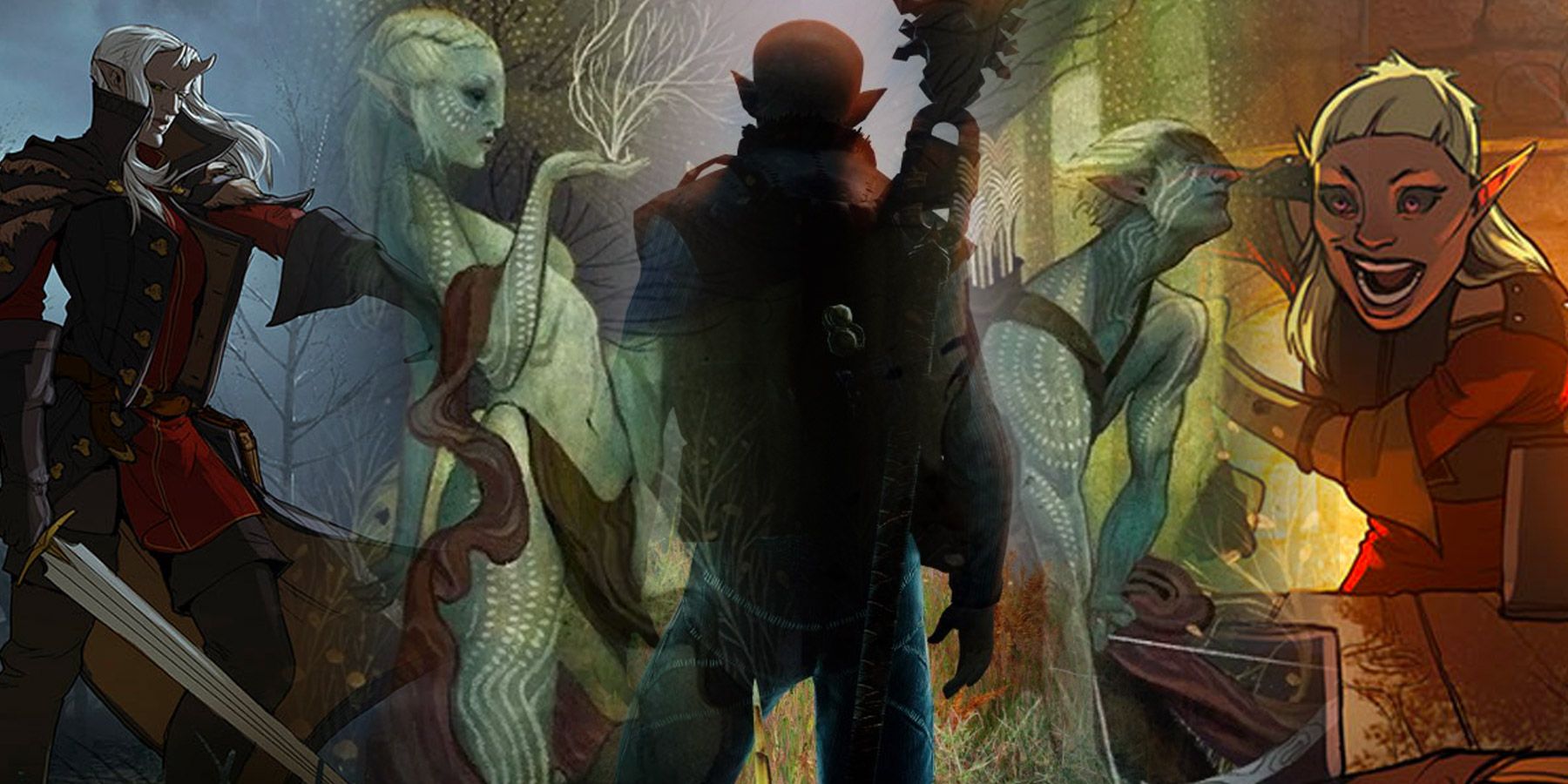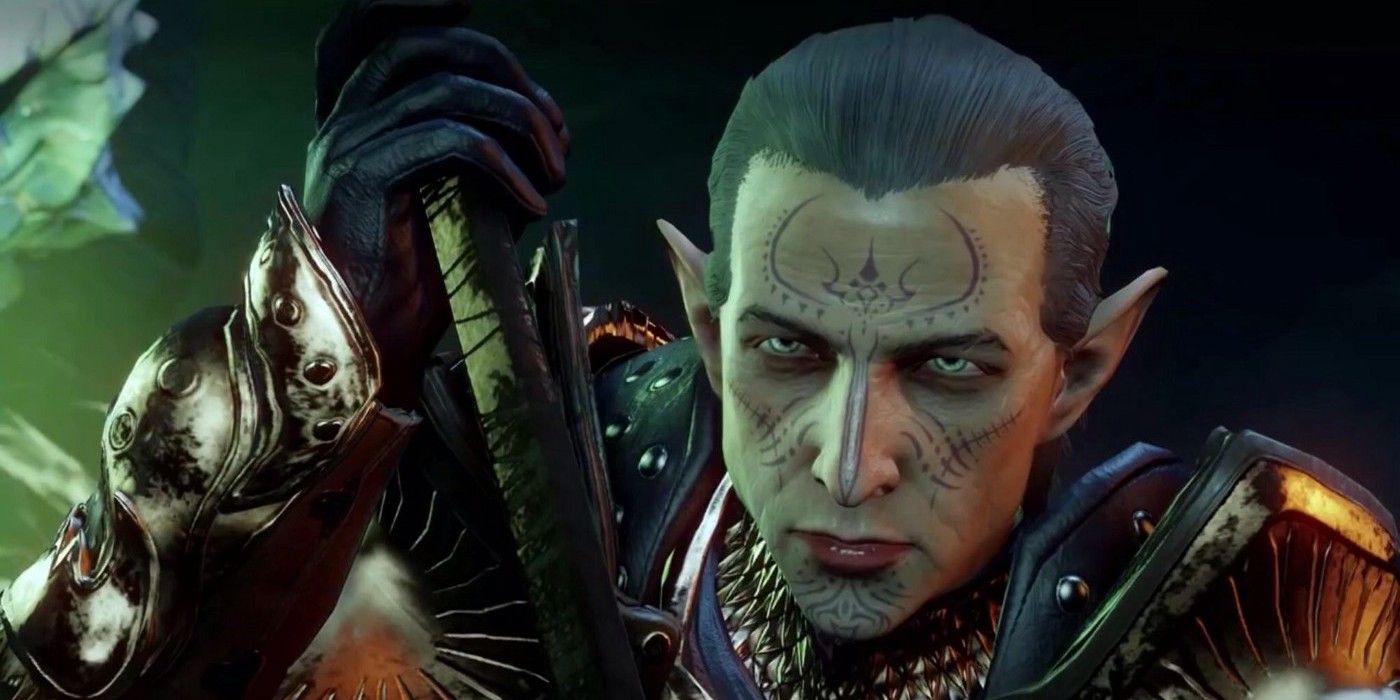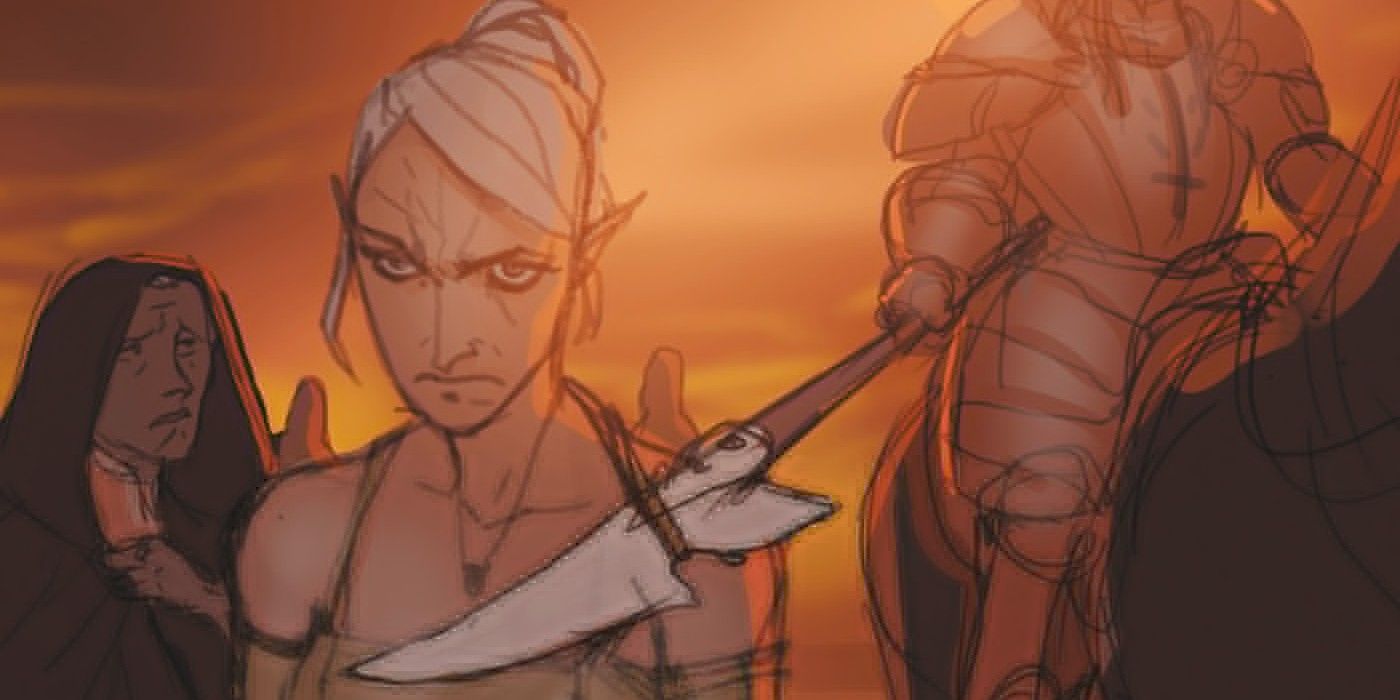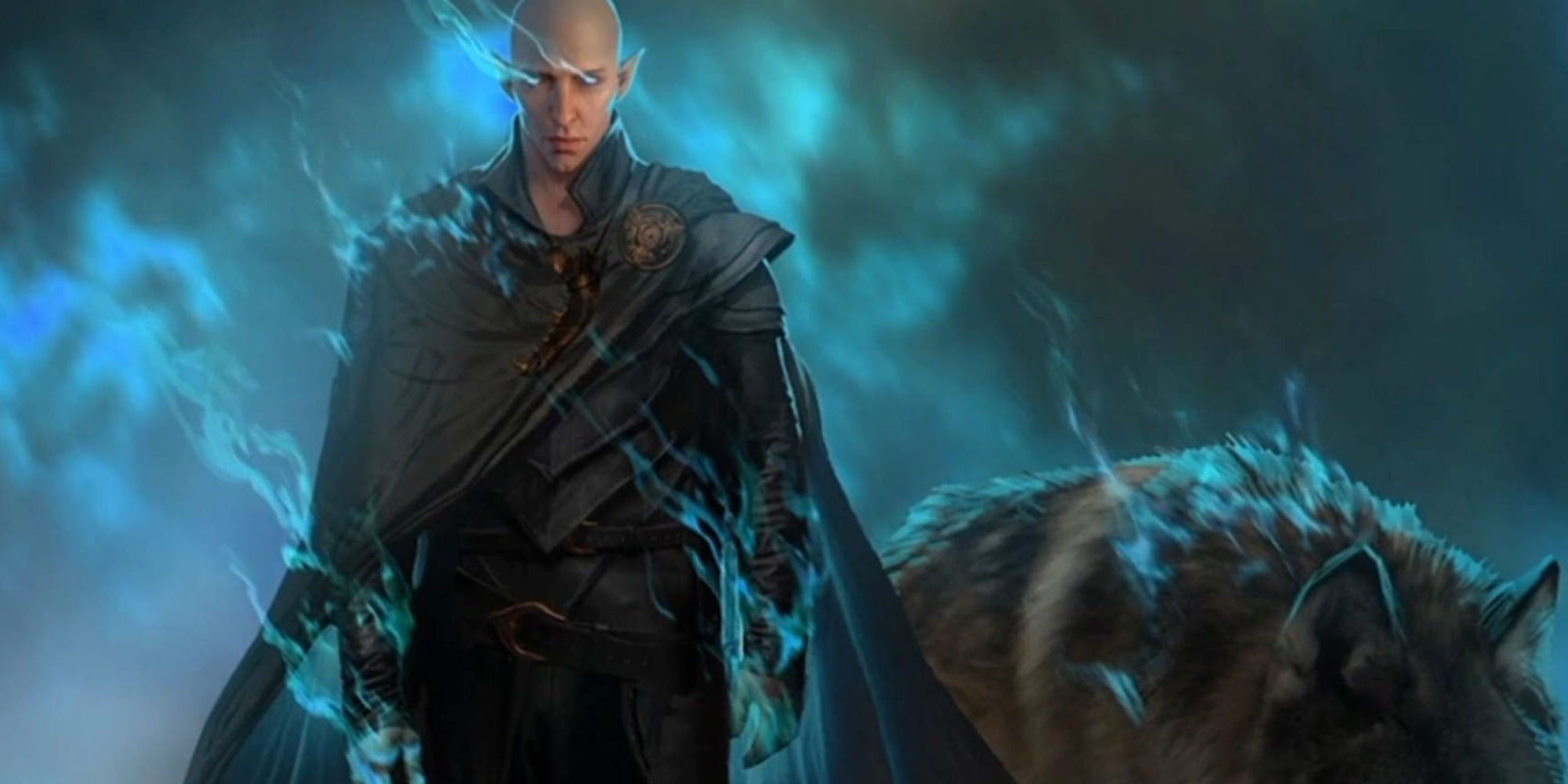The oppression of elves in the Dragon Age series is one of the many driving forces behind character motivations and the domineering power structure of Thedas. Most of the lands once belonged to the elves, as they were known to once be immortal while possessing powerful magics that were forgotten after they were beaten down by the colonization of humans and qunari. Unfortunately, this lore has a flavor that humans in the real world are quite familiar with.
While the whole series sheds light on this history and the current system of racism and oppression, none dive into its complexities quite as much as Dragon Age: Inquisition when the Inquisitor is a Dalish elf. As a Dalish elf, the Inquisitor puts up with a lot of traumatic microaggressions from NPCs and even their own close companions. Not only that, but they are pulled into a religious role that has a history of racism against their people. To add on top of what is within Dragon Age, the way elf lore is written has undertones of colonialist sympathy and needs to be addressed.
Sera's Internalized Racism
For Dalish elf Inquisitors, they are immediately given a racist comment from Sera upon meeting. She is disappointed to find out the Herald of Andraste is an elf and says, "I hope you are not too elfy." Of course, there is one interesting aspect to this, as Sera herself is an elf. By "too elfy," Sera is commenting on the Dalish background of the Inquisitor. The Dalish are those that stick to the old ways and reject the colonization that humans have forced upon city elves.
Sera disrespects the Dalish at every chance she gets in Inquisition. She believes elves are too stuck in the past and play a poor part in the world by valuing old Dragon Age lore and nearly forgotten traditions. Sera herself is not Dalish, of course, as she was found as an orphan was raised by a human woman. Growing up among humans, she witnessed their racism and internalized it to shoot back at other elves.
Dalish Inquisitors get special front-row seats to this complex type of racism. In fact, at one point during Sera's romance, she will even ask a Dalish Inquisitor to choose her over their people's religion and culture. Sera is a devout believer in the Maker and thinks Dalish religion is a bunch of made-up fairytales from dead primitive losers. When the Dalish Inquisitor finds out anything about their culture was wrong or different, Sera is quick to gloat instead of comfort.
This has caused Sera to be one of the least-liked characters in Inquisition, especially by Dalish players. However, the sad part is that Sera is a victim of this racism because of how she grew up. She is parroting what she learned in the years she spent with humans, growing up to believe in Dragon's Age's human religion. In fear of being treated like an elf, she will reject other elves. It is a sad result of what a good person can become out of fear of oppressed racial treatment. The best Sera could do for herself psychologically from a young age was to believe elves deserved what they got.
The "Whitewashing" of Ameridan
Another complexity that showed up in Inquisition and not so much in the other titles was the "whitewashing" reveal of Ameridan, the first Inquisitor. He is unveiled to be a Dalish elf at the end of the Jaws of Hakkon DLC. This comes as a huge shock to everyone, as Ameridan was thought to be human and as written as so in history.
The Inquisitor gets a chance to talk to him, and if they are Dalish, they can give him the bad news about the state of their people. He laments this and shares that he never had a distrust of humans, and he in fact believed in both the Maker and the elvhen pantheon. He believed the survival of Thedas meant all different races had to come together in peace and common goals, but his prediction was too optimistic. After all, one of Dragon Age's main themes is betrayal.
The erasure of Ameridan's true identity is similar to how history has played out in real life. Those who get to write history are the winners, and in Thedas, that was the humans after conquering the Dales. The act of "whitewashing" Ameridan to be a human is an intentional betrayal and an act of keeping humans in power. If Dragon Age's elves discovered the first Inquisitor was Dalish, they might get ideas of pushing back more against their oppression.
The Undertone of Colonialist Sympathy In The Ancient Elf Pantheon Reveal
With all Dragon Age has built up with the oppression of elves, the writing in Inquisition made a big mistake. It was revealed that the elvhen pantheon as the Dalish knew it never existed. Instead, the elves were slaves to more powerful mage elves and those powerful elves were treated like gods. After the fall of ancient elf society, the elves slowly forgot that their gods were just powerful mage slavers.
This reveal is huge and what sets the stage for Solas' motivations and the plot for Dragon Age 4 - however, it has disturbing racist implications in the writing. While Sera and Ameridan's stories and feelings were well-written and amazing reflections of the complexities of racism, the fall of the elf pantheon makes the mistake of garnering colonialist sympathy. While Bioware made it so the elven pantheon is rooted in lies, they have made it known that they will leave the being closer to the Christian God, the Maker, ambiguous.
When the Americas were colonized, the native people had to be wrong and re-taught what to believe, with monotheism being seen as the only "right" belief. The Dalish's oppressions reflected this, but BioWare decided to show that being colonized may not have been so bad after all since they were already wrong and were already slaves. In a sad twist, it shows that Sera's internalized racism was correct in believing the Dalish were wrong to hold onto the past.
What Dragon Age 4 Can Do Right
From a sociological standpoint, the Dragon Age series is a strong series that makes a lot of great points about character motivations, perspectives, systematic oppression, and the erasure of history. It has done more good than harm in its narrative, but the harm should not be ignored since Dragon Age 4 can make up for past mistakes. For one, BioWare can go back on what it said about the ambiguity of the Maker and show that the Maker is also not what it seems.
Another idea is to give the Dalish their long-deserved prosperity, and not at the cost of helping villains. Unfortunately, it is looking like Dragon Age 4's elves may be mostly siding with Solas or the Qunari in the coming battle's head. However, with how they have been treated, no one can really blame them.
Dragon Age: Inquisition is available to play on the PC, PS3, PS4, Xbox 360, and Xbox One.


.jpg)


